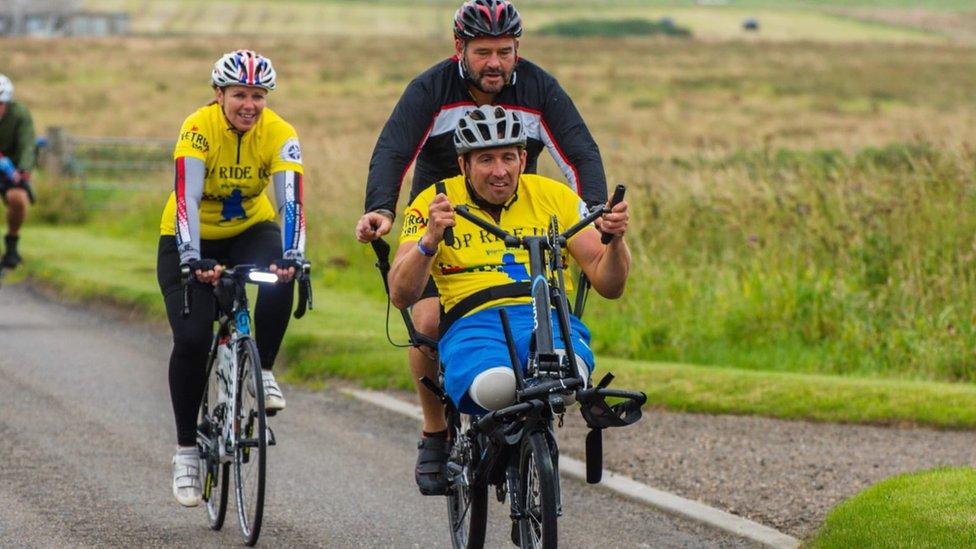Amputee veterans cycle 1,000 miles from John O'Groats to Land's End
- Published
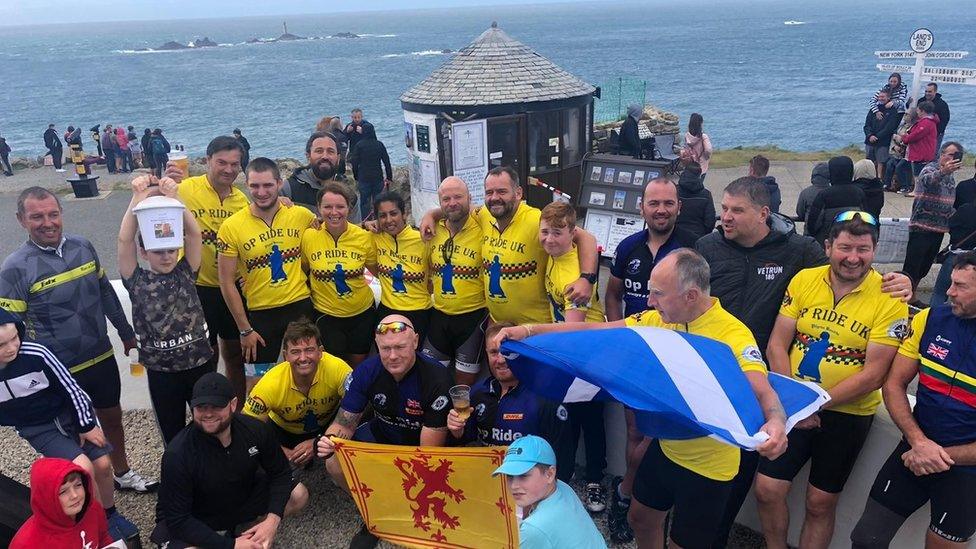
The 10 veterans completed the ride to raise awareness for motor neurone disease
Ten amputee veterans have completed a 1,000 mile cycle ride from John O'Groats to Land's End in just 13 days.
The ride was completed to raise awareness of motor neurone disease, after veteran firefighter John Chart was diagnosed in July 2019.
They cycled 80 miles a day, fighting through a heatwave at the start and torrential rain to finish.
One rider was former Lance Bombardier Ben Parkinson, who lost both legs and suffered brain damage in Afghanistan.
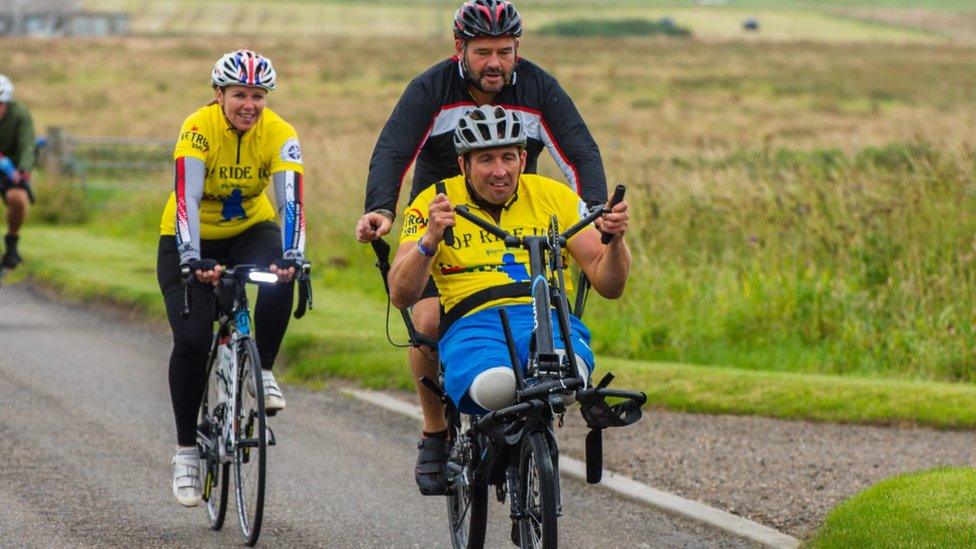
L/Bombardier Ben Parkinson said he "couldn't wait" to be back with the team after lockdown
L/Bombarbdier Parkinson, from Doncaster, said: "It's been a long time in lockdown and I hadn't seen anybody for months - I couldn't wait to be part of the team again.
"There's always someone struggling and this was my chance to support John to get him on his way."
The ride has so far raised more than £14,500 for both the disease and charity Pilgrim Bandits, external, an expedition organiser for injured military and emergency service personnel.
The team included amputee riders from Birmingham, Hampshire, Kent, Lancashire, Leeds, London, Plymouth and Stoke-on-Trent.
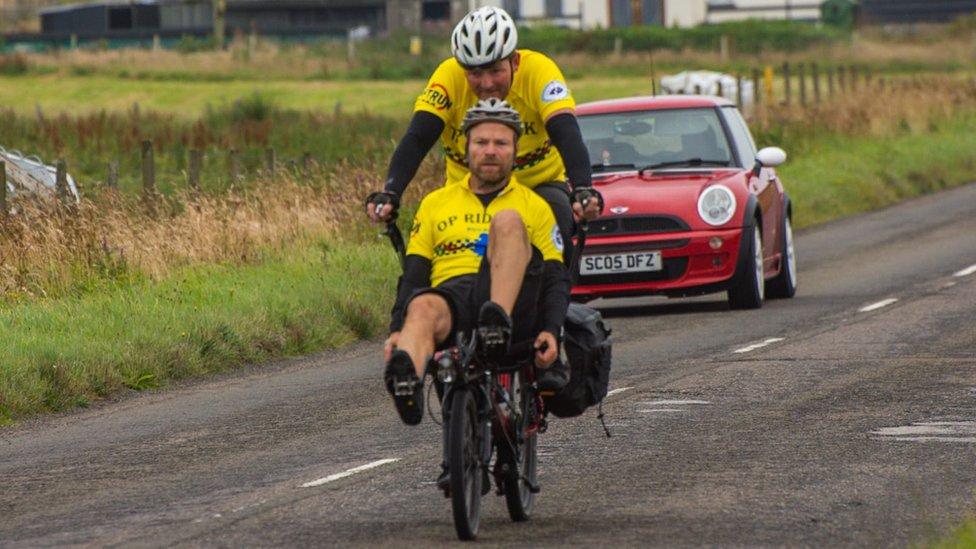
John Chart on his bike adapted to help him complete the challenge
Mr Chart, from Beckenham, used an adapted tandem for the challenge.
Friends and family rode along side him throughout, including his wife Arlene and 14-year-old son Christopher.
Mr Chart said he was "devastated" by the diagnosis but intended to battle on throughout.
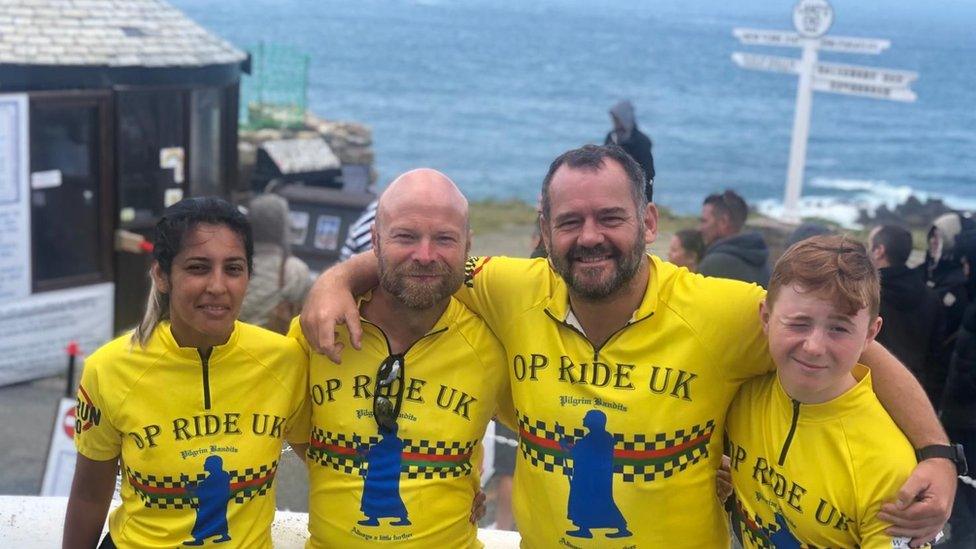
John Chart at Land's End with his wife Arlene and son Christopher and Matt Hellyar, who rode in tandem with L/Bdr Parkinson
He added: "Motor neurone disease shuts down your muscular system until you are literally cocooned inside your own body, your brain is still compos mentis but you can't move, you can't breathe, you can't eat, you can't speak and your body eventually will just close down until you sadly pass away.
"I want people to see the devastation of what it does to you, but I also want to say to people don't ever give up."
- Published10 August 2020
